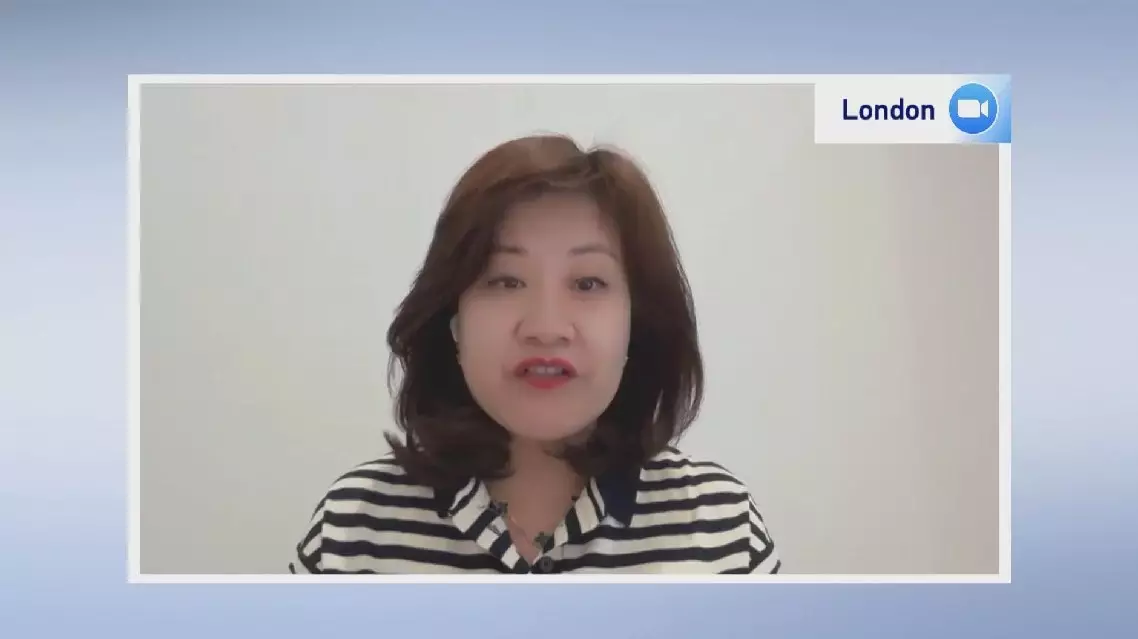Consumer-oriented stocks are likely to emerge as a pack leader amid China's market rally that has followed the announcement of a broad-reaching stimulus package, predicted a UK-based finance expert.
Stock markets in China clocked their best week in almost 16 years as the CSI 300 Index, a pivotal indicator of the performance of leading listed companies on China's A-share market, rallied 15.7 percent this week, boosted by a host of economic stimulus measures.
Earlier this week, the country's central bank, top securities regulator and financial regulator announced a raft of monetary stimuli, property market supports and capital market strengthening measures to be implemented in the near future to prop up the country's high-quality economic development.
Chen Xiaolin, head of international at KraneShares, an investment institution in London, said that in her analysis the policies are set to bring forth a boost in consumer spending.
"You see almost across sectors, Chinese stocks broadly rallied on the back of the policy easing news. Eventually, there will be winners and leaders. If you look at the policies, you see they really targeted on recovery of the consumer power, consumer sentiments, helping the households to have more disposable income. Eventually, you will see that consumer stock will become the leader in the overall rally," said Chen in an interview with China Global Television Network (CGTN) on Friday.
Pan Gongsheng, governor of the People's Bank of China (PBOC), said at a press conference on Tuesday that the central bank will establish a swap program for securities, funds and insurance companies to obtain liquidity from the central bank through asset collateralization.
According to Pan, eligible companies could use their assets including bonds, stock ETFs and holdings in constituents of the CSI 300 Index as collateral in exchange for highly liquid assets such as treasury bonds and central bank bills. Funds obtained through this tool may only be used for investment in the stock market.
The initial scale of the swap program will be set at 500 billion yuan (about 71 billion U.S. dollars), with possible expansions in the future, Pan said.
Chen emphasized the potential of these policy tools to boost investors' confidence, particularly in housing and other sectors.
"This time around is very different. They announced a lot of new policy tools as well as additional funding available to the equity market, to the social housing, to real estate, from almost all fronts. Me personally, at KraneShares, we expected stimulus to come, but they beat our expectations on all fronts. Second, Governor Pan, who is the boss of PBOC, initially said 500 billion to start with this equity exchange program. He said, 'if needed, we can do another 500 billion'. It's really to show the broader market, 'listen, we are ready to do whatever it takes to get the market back and get investors' confidence back.' I think China just delivered a double egg in one action," said the analyst.
Chinese firms may take this opportunity to expand their business across borders, she added.
"I think a lot of firms will use this as an opportunity to expand their business, to go international. Just set by the example by Alibaba, by Tmall. Even NIO and BYD have all internationalized their business. I think corporates will feel a huge relief to reduce the cost of borrowing. [With] the good liquidity coming into their company, they can start to expand more quickly and rapidly," said Chen.
She also stressed that companies and investors should expect more measures to be rolled out in the near future.
"I do expect more packages to be announced by Beijing, particularly to touch on industries, particularly to touch on which sectors they're going to heavily invest and focus on," she said.

China's broader-than-expected economic stimuli to extend stock market gains: expert


















































